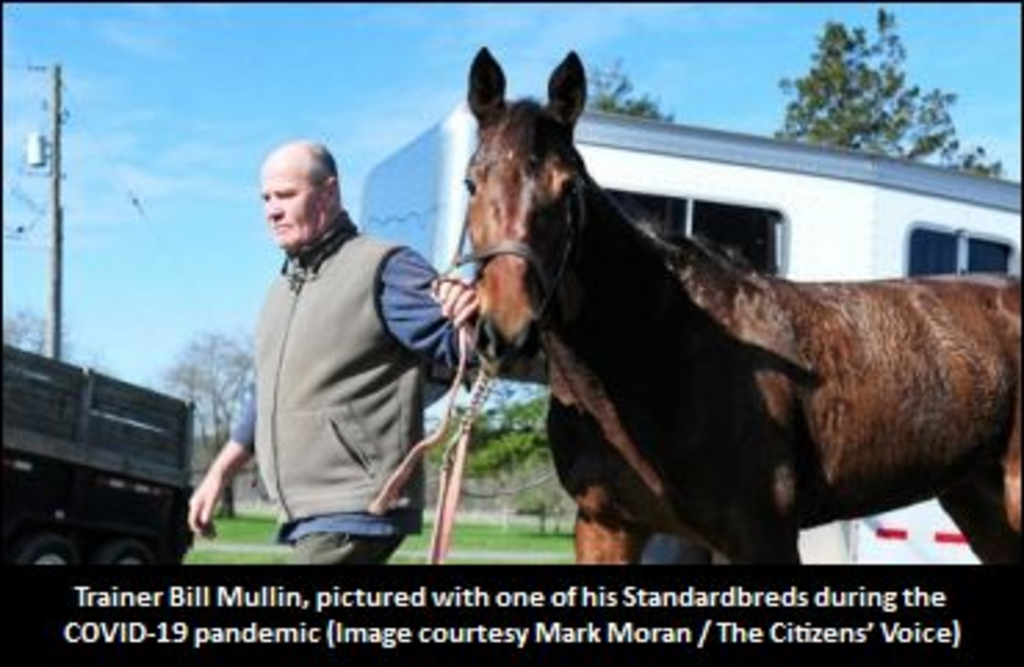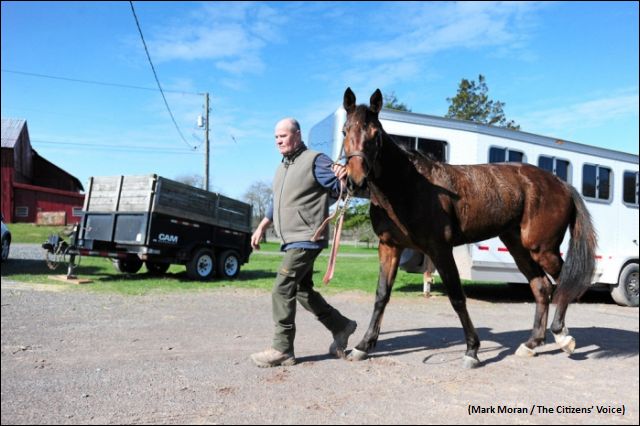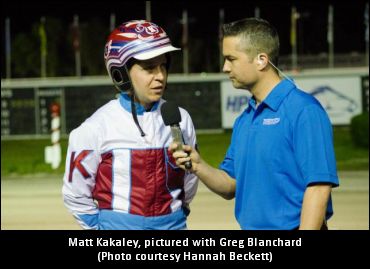Hurry Up And Wait

As the COVID-19 pandemic rolls on, the North American harness racing industry is doing its best to pretend that it knows what to do with an ample amount of down time.
When it comes to Standardbred racing, dedication and hard work are paramount – they always have been and they always will be.
No racing outfit is successful without an ‘all-in’ attitude from its working parts. Be it those whom truck home early in the morning after the last race, or those whom sacrifice personally for the betterment of the horses that have been tapped to campaign.
Racing, generally, makes those sacrifices – and it does so with a genuine smile. And, arguably, racing makes those sacrifices with more regularity than many other vocations.
Racing’s neverending grind never really ends. The grind helps shape and mold resilient individuals – individuals that truly appreciate the bonds they’ve made, both with fellow horsepeople and the charges they have been tasked with overseeing.
So, with the shutdown of pari-mutuel horse racing due to the pandemic, horsepeople, for the lack of a better comparison, are sort of like fish out of water. This is not the norm.
“We’ve gone through a lot of different things, but nothing like this where everywhere’s shut down,” trainer Bill Mullin recently told The Citizens’ Voice. “We’ve had tracks shut down. We raced through a strike. Never anything like this.”

Trainer Bill Mullin, pictured with one of his Standardbreds during the COVID-19 pandemic.
Mullin, who is nearing 50 years in the harness racing industry, has, admittedly, been doing what he can to keep busy. He has told The Citizens’ Voice that, while some horsepeople have chosen to rest their stock for the time being, he is currently keeping his stock tight in hopes that races will be back sooner than later.
“I’m still hoping that something’s going to open up,” said Mullin, who went on to say that, “if you let them (horses) down, if you give them off a month, it takes them a month to get back.”
It should come as no surprise to anyone that motivated catch drivers tend to be some of the busiest horsepeople in the Standardbred world. When the opportunities present themselves, pilots that are looking to prove themselves – or maintain active client bases – will do whatever it takes to slide into the sulky for the next available race.
The motivated catch driver will go training trips in the mornings; they’ll qualify as many horses as need be; they’ll steer as many horses as they can during a live card; they’ll drive hundreds of miles a week just to be in the race bike on a consist basis.
The grind of a proactive catch driver is neverending – and they’d have it no other way.
Enter the COVID-19 pandemic.
 Not including jogging miles, training trips, and qualifying starts, Matt Kakaley has driving in more than 33,000 pari-mutuel races since 2006. Now, Kakaley’s sitting on the sidelines, watching just like everyone else. Kakaley’s life in the harness racing industry has not readied him for this sort of idle time.
Not including jogging miles, training trips, and qualifying starts, Matt Kakaley has driving in more than 33,000 pari-mutuel races since 2006. Now, Kakaley’s sitting on the sidelines, watching just like everyone else. Kakaley’s life in the harness racing industry has not readied him for this sort of idle time.
Kakaley, who cut right to the chase when in discussion with The Citizens’ Voice, echoed the sentiments of many in the racing game. “Busy every day,” Kakaley said, in regard to what his normal schedule usually demands of him. “Now I’m stuck at home doing nothing. Big difference.”
At the end of the day, the current routine for North America’s harness racing participants is just, simply, hard to get used to. For Kakaley – who has been around Standardbreds his whole life – not seeing his equine friends weighs on him.
“It’s terrible not being able to go and see them,” said Kakaley, “I love what I do. I work a lot, but it’s a passion. Just sitting at home and not being able to race or be around them, it’s hard.”
(With files from The Citizens’ Voice)

